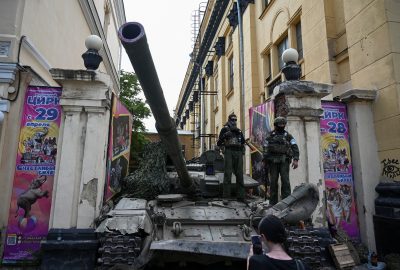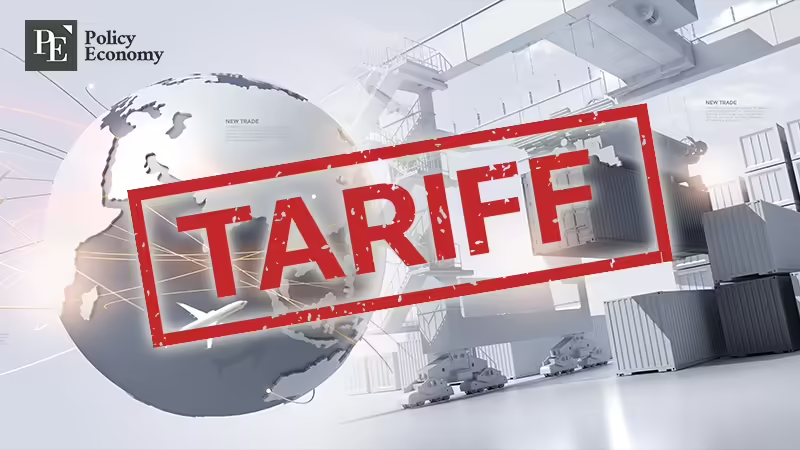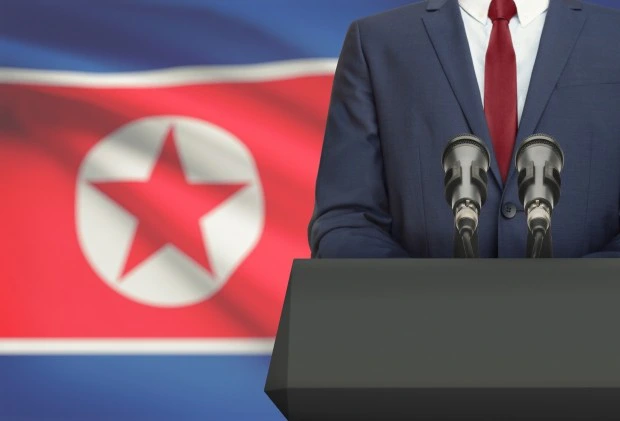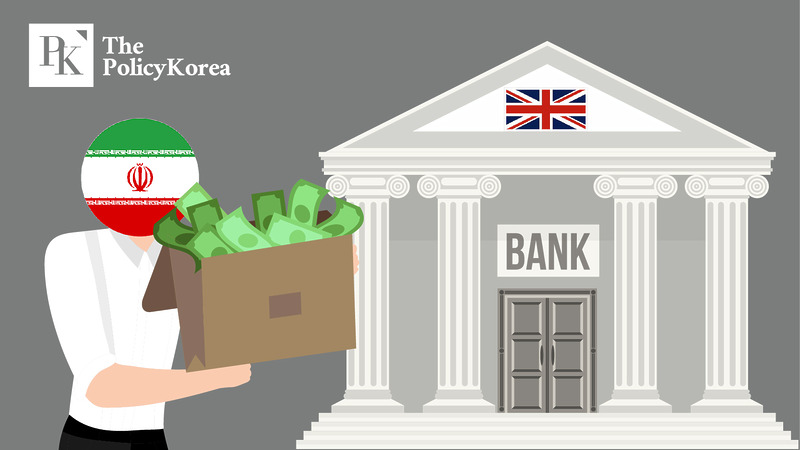[동아시아포럼] 바그너그룹 반란 이후, 푸틴 리더십에 대한 엇갈린 평가
프리고진 반란 세력, 모스크바 300km 앞두고 해산 푸틴 대통령, 정권 유지에 성공하면서 리더십 입증 중국‧인도‧남미 국가도 러시아와 우호 관계 이어가
[동아시아포럼]은 EAST ASIA FORUM에서 전하는 동아시아 정책 동향을 담았습니다. EAST ASIA FORUM은 오스트레일리아 국립대학교(Australia National University) 크로퍼드 공공정책대학(Crawford School of Public Policy) 산하의 공공정책과 관련된 정치, 경제, 비즈니스, 법률, 안보, 국제관계에 대한 연구·분석 플랫폼입니다.
지난 6월, 예브게니 프리고진이 지휘하는 수천 명의 바그너그룹(Wagner Group) 용병들이 러시아의 수도 모스크바를 향해 행군하는 모습은 전 세계를 충격에 빠트렸다. 그러나 이들은 모스크바를 불과 300km 앞둔 지점에서 돌연 행군을 중단하고 해산했다. 일련의 사건들은 향후 블라디미르 푸틴 정권과 러시아 외교 정책에 대해 여러 가지 추측을 불러일으키기에 충분했다.

서방 언론들, 바그너그룹 반란으로 푸틴 정권 약화 전망
프리고진의 반란이 푸틴 정권을 전복하기 위한 것이었는지, 아니면 러시아군 지휘부의 퍠착에 대해 국제 사회의 관심을 촉구하기 위한 것이었는지, 그 의도와 상관없이 무장한 용병들이 러시아의 주요 도시를 점령한 것은 매우 도전적이고 충격적인 사건이다. 이는 굳건해 보이던 푸틴 정권이 보여지는 것과는 대조적으로 심각한 균열에 노출됐음을 시사하고 있다.
서방의 언론들과 정부 관계자들은 이번 사태를 계기로 푸틴의 권력이 급속히 약화될 것이라고 전망하면서 이로 인해 우크라이나와의 전쟁은 물론 아시아 주변국, 특히 중국과의 관계에도 부정적인 영향을 미칠 것으로 예상했다.
러시아 내에서도 푸틴 정권의 입지가 흔들리는 모양새다. 우크라이나와의 전쟁이 진정되지 않는 상황에서 일어난 바그너그룹의 무장 반란은 종종 블랙코미디의 소재로 사용됐다. 러시아의 소셜미디어에서도 “러시아는 3일 안에 키예프(키이우)를 점령하려 했지만 결국 모스크바가 점령됐다”는 우스개 소리가 나왔다.
일반적으로 독재자의 권력이 약화되고 정권의 불안정해지면 전략적 동맹국과 파트너들은 그 정권과의 관계를 재평가하게 된다. 그런 만큼 동맹국과의 관계에 지대한 영향을 받는 경제·안보 분야의 의사결정에도 신중해질 수밖에 없다. 실제로 중국 정부는 바그너그룹의 반란을 계기로 푸틴 정권의 붕괴 가능성과 협력관계에 대해 재평가하면서 향후 정치적·경제적 자본을 투자하는 데 더욱 신중을 기할 것이라는 입장을 취한 것으로 알려졌다.
비서구권 동맹국, 폭력 없이 반란 진압한 리더십 높이 평가
반면에 러시아의 비서구권 동맹국들은 이번 사태를 다르게 해석하고 있다. 이들은 푸틴 대통령이 프리고진의 무장 반란에 대응해 자신의 정권을 유지하는 데 성공하면서 그의 리더십을 국제적으로 입증했다고 치하하고 나선 것이다. 특히 이러한 성과는 과거 소수의 독재자들만이 가능했다는 점에서 더욱 높게 평가되고 있다.
민주주의적 선거가 부재한 독재 정권의 경우 종종 반란, 반군, 쿠데타 등 폭력을 수반한 저항에 직면하게 된다. 이러한 상황에서 독재 정권의 지도자들이 확보한 통치력과 정당성은 이들의 저항을 억제, 예방, 완화하며 나아가 핵심 인물들을 제거하거나 침묵하게 할 수 있다.
이같은 관점에서 본다면 푸틴은 분명 뛰어난 성과를 거뒀다. 실제로 전투가 발생하지도 않았고 비상 선언이나 외부의 지원 없이 반란군의 행군을 중단시켰다. 또 구체적인 방법은 알려지지 않았으나 결과적으로 바그너그룹을 해체시켰고, 수장인 프리고진은 러시아의 확고한 동맹국인 벨라루스로 망명토록 했다. 많은 러시아인들이 러시아-우크라이나 전쟁을 국제사회의 질서를 훼손하는 부적절하고 폭력적인 행위로 인식하는 상황임을 감안할 때 푸틴 대통령은 바그너그룹의 무장 반란을 폭력 없이 처리함으로써 스스로 뛰어난 지도자임을 입증한 것이나 다름없다. 일각에서는 이를 두고 ‘정치적 마법’이라는 평가를 내리기도 했다.
실제로 모든 독재자들이 푸틴과 같은 성과를 거두지는 못했다는 사실은 최근의 사례에서도 확인할 수 있다. 지난해 카자흐스탄의 반정부 시위 당시 카심-조마르트 토카예프 카자흐스탄 대통령은 구소련 공화국 소속 6개국으로 구성된 집단안보조약기구(CSTO)에 안보 지원을 요청했고, 이들의 도움으로 수백 명의 시위자들이 사망한 후에야 정치적 안정을 되찾을 수 있었다.
이보다 앞선 지난 2016년 7월 15일 튀르키예(구 터키)에서는 이른바 ‘조국의 평화를 위한 협의회(Peace at Home Council)’라 불리는 한 군사 파벌이 레젭 타입 에르도안 대통령과 정부를 상대로 쿠데타를 시도하면서 비상사태가 선포됐고, 에르도안 대통령이 권력을 회복하기 전까지 300명 이상의 사람들이 사망하기도 했다.
공고한 중·러 관계, 아시아에서 러시아 지위 약화되지 않을 것
비서구권 동맹국들에 이어 일부 남미의 지도자들도 푸틴의 대응에 대해 우호적인 반응을 보였다. 니콜라스 마두로 베네수엘라 대통령은 푸틴 대통령을 무장 세력의 반란을 효과적으로 진압한 승리자라고 칭송했고 미겔 디아스카넬 쿠바 대통령은 “푸틴 대통령이 반란을 성공적으로 처리할 수 있는 능력이 있음을 의심하지 않았다”며 격려의 메시지를 보내기도 했다.
아시아에서는 러시아의 최대 동맹국인 중국이 푸틴 대통령을 공식적으로 지지하면서 그의 뛰어난 리더십을 높이 평가했다. 중국 정부는 중-러 관계의 미래를 찬양하면서 ‘바그너그룹의 반란이 푸틴의 지위를 약화시켰다’는 서구의 주장을 일축하는 내러티브를 구축했다. 중국 국영 언론들도 반란 세력에 대응한 푸틴 대통령의 결단력과 강력한 위협을 강조하면서 이번 사태를 계기로 푸틴 정권이 더욱 공고해질 것이라고 전망했다. 심지어 인도 정부도 러시아와 관련된 국제사회의 갈등에도 불구하고, 러시아에 대한 우호적인 입장을 바꾸지 않았다.
바그너그룹의 반란 이후 푸틴 대통령은 지난 7월 4일 열린 상하이협력기구(SCO) 정상회의에 참석해 아시아 국가들을 상대로 러시아 정권의 안정성에 대해 어필할 기회를 가졌다. SCO 회담 결과, 비서구권 국가들의 통일된 인식과 지지, 그리고 러시아와 동맹국 간의 우호적 관계 등을 고려할 때 실패로 돌아간 바그너그룹의 반란이 아시아 지역에서 러시아의 지위를 약화시키지는 않을 것으로 보인다.
All the world’s a stage for Russia’s mutiny drama
The world watched in shock when thousands of Wagner Group mercenaries led by Yevgeny Prigozhin marched on Moscow in June 2023. Less than 300 kilometres from the Russian capital, the mercenaries suddenly decided to turn around and announced their disintegration. The events triggered speculation about the stability of Russian President Vladimir Putin’s regime and the possible implications for Russia’s foreign policy.

Before the dust settled, Western media and policymakers were quick to hail the weakening of Putin’s grip on power, which is anticipated to not only weaken Russia’s fighting capacity in Ukraine but also undermine Moscow’s relationships with its Asian partners, particularly China. This is due to uncertainty surrounding Russia’s foreign policy orientation in case of a regime change.
The inference that drives this narrative is clear. Whether Prigozhin wanted to topple Putin or simply attract attention to the failures of the Russian military top brass in Ukraine, heavily armed mercenaries boldly occupying Russia’s major cities without Putin’s permission is an outrageously defiant act. It is indicative of deep cracks in what appeared to be a rock-solid political regime.
Against the backdrop of Russia’s stalling operations in Ukraine, the Wagner mutiny became a subject of darkly-humoured jokes on Russian social media, such as ‘[Russia] wanted to take Kyiv within three days but ended up conquering Moscow’.
When an autocrat’s grip on power weakens, regime stability is called into question, which makes the country’s strategic allies and partners reassess the relationship with the regime and even start hedging their economic and security bets affected by that relationship. For example, China was reportedly re-evaluating its partnership with Moscow and being ‘more cautious with its words and actions about Russia’. Beijing and other partners do not want to invest political and economic capital in a relationship with a regime that may fall or be replaced by one which might turn against them.
But another equally coherent story is likely to prevail among Russia’s non-Western allies, namely, that Putin has successfully proved to elites and foreign partners that he can handle challenges to his regime in a way that very few authoritarian leaders in a similar situation would have.
Due to the lack of competitive elections, authoritarian regimes occasionally face collusions, mutinies, rebellions and coups d’état, often involving violence. In this context, authoritarian leaders’ legitimacy and their right to rule is based on their capacity to suppress, prevent or mitigate these challenges and silence or remove the initiators.
From this standpoint, Putin performed exceptionally well — he managed to stop Russia’s most effective fighting force without actual fighting, a nationwide state of emergency or external support. He somehow found a way to compel the Wagner Group to dissolve, with its boss allegedly leaving for Belarus, Russia’s stalwart ally.
Not every authoritarian leader can boast this level of effectiveness. Kazakhstan President Kassym-Jomart Tokayev had to appeal to the Collective Security Treaty Organization, of which Kazakhstan is a member, to request security assistance when his power was challenged by what is now known as the 2022 Kazakh unrest. Hundreds of people died in the protests before political stability was restored.
Similarly, when on 15 July 2016, a faction within the Turkish Armed Forces, organised as the Peace at Home Council, attempted a coup d’etat against the government and Turkish President Recep Tayyip Erdogan, a state of emergency was declared. More than 300 people were killed before Erdogan’s grip on power was reinstated.
Considering that Russia is at war with Ukraine — a war which many in Russia view as illegitimate — Putin’s nonviolent handling of the Wagner incident appears as nothing less than political magic. It is seen as proof of Putin’s effectiveness as a leader.
This perspective is evident in the reactions of some South American leaders to the events in Russia. Venezuela President Nicolas Maduro announced that the Russian leader, having effectively blocked the rebellion attempt, came out as a winner. Similarly encouraging wishes were sent to Putin by his Cuban counterpart, President Miguel Diaz-Canel, who stated that Cubans had no doubts about Putin’s capacity to handle the challenge.
Russia’s largest Asian partner, China, formally expressed support for Putin and praised the future of China–Russia relations. Beijing has also developed a narrative that glorifies Putin’s effectiveness as a leader and dismisses the notion that the Wagner mutiny undermined Putin’s standing. China’s state-run tabloids have praised Putin’s ‘decisive actions’ and the Kremlin’s ‘strong capacity of deterrence, which will further increase its authority’.
Nor did India shift its position on Russia, continuing to consider its relations with Moscow as ‘steady despite all the conflict in the world’. At the Shanghai Cooperation Organisation summit on 4 July 2023, Putin had a chance further to reassure Asian nations of stability after the Wagner mutiny.
Judging by the outcomes of the Shanghai Cooperation Organisation summit, the consolidating narrative within the non-West and the current state of Russia’s relations with its allies, the failed Wagner mutiny is unlikely to have a detrimental effect on Russia’s standing in Asia.
원문의 저자인 알렉산더 코롤레프(Alexander Korolev)는 시드니 뉴사우스웨일즈대학교(University of New South Wales)에서 정치학과 국제관계 분야 강사로 재직 중입니다.




























